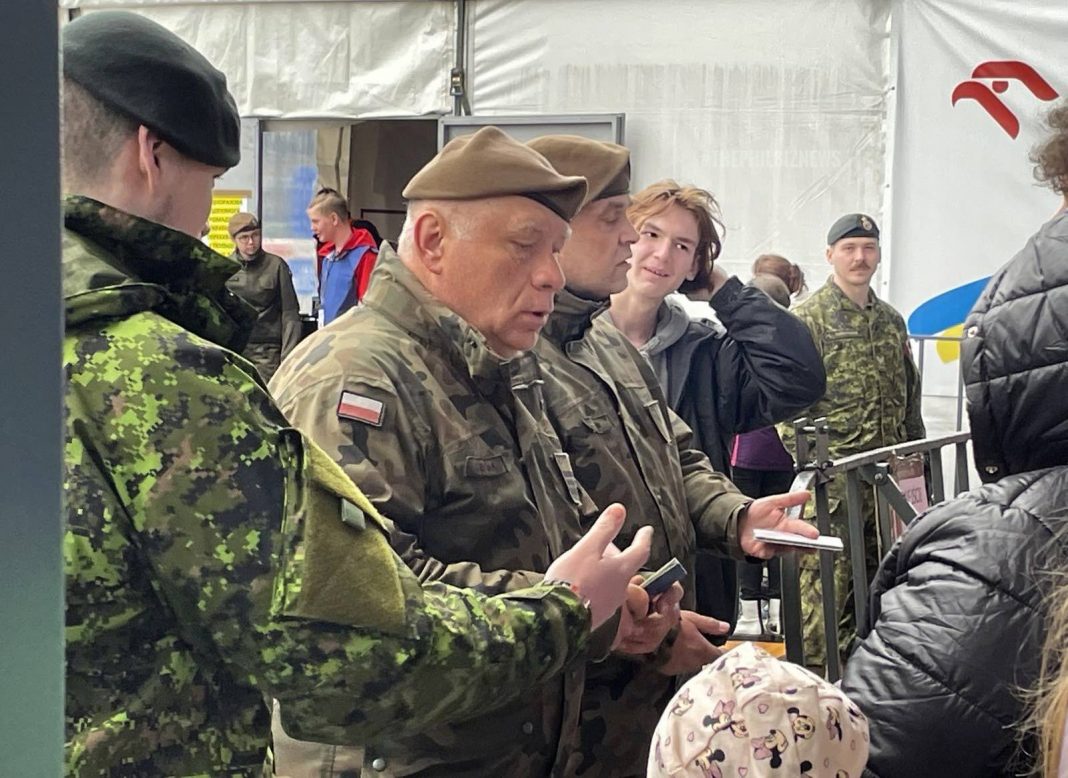By Jarosław Szczepankiewicz CDA a.i. of the Embassy of the Republic of Poland in Manila
Can we ignore the cost of war in any post-war reconciliation process? The answer is obvious – NO. The reparations of war and genocide victims are considered as a genuine right and a prerequisite to any reconciliation process. Good relations between states require mutual respect and an honest reckoning with the past that should build be on a solid foundation of truth. Under international law, a responsible state is under an obligation to make full reparation for the injury caused by its internationally wrongful act. In order to prepare an orderly process, such damage needs to be properly registered in the first place. Accountability means that such costs move from the victims to the aggressor. It frames reparation claims and helps to discourage an unjustified military invasion by any potential aggressor in the future.
Wars have complex economic and social consequences. Conflict-driven deaths, physical destruction and economic disorganisation levy unambiguously heavy tolls on societies. However, accounting for the whole burden of wars on human well-being is challenging. Conventional indicators like casualties, infrastructure damages and the effects on GDP provide useful benchmarks, but they fail to capture the complex impact of wars.
UNGA Resolution 60/147 entitled “Basic Principles and Guidelines on the Right to Remedy and Reparations for Victims of Gross Violations of International Human Rights Law and Serious Violations of International Humanitarian Law” calls for “adequate, effective and prompt reparations” to redress gross violations of international human rights law and serious violations of international humanitarian law.
Ukrainian case – Russian Aggression in 2022
On February 24th, 2022, Russia launched a full-scale invasion of Ukraine. The war that has raged for the past year follows Russian territorial aggression against its neighbour that began in 2014 with the illegal annexation of Crimea and a proxy war in the eastern Donbas region. Russia’s invasion of Ukraine has had a devastating impact, with billions of dollars in infrastructure damaged or destroyed and 8 million more Ukrainians living in poverty.
Ukraine’s economy has been hit hard by the devastation of the Russian invasion and the need to divert productive capacity and labour to the war effort, Ukraine is running persistent trade deficits, government spending far exceeds its revenues, and inflation has soared since the Russian invasion. The U.S. and Europe provide the bulk of foreign aid to Ukraine.
The war in Ukraine has provoked the largest displacement crisis on the European continent since World War II, forcing people to leave their homes at exceptional speed and scale. Over 5.2 million Ukrainian refugees are now present across Europe. An additional 2.85 million are in Russia, some of them brought there by force. The war has driven nearly a third of Ukrainians from their homes. Poland, Germany each host over a million Ukrainian refugees.
The World Bank has estimated it will cost Ukraine minimum $411bn to recover and rebuild from Russia’s war over the next 10 years. Nearly 50 nations co-sponsored the historic UNGA resolution on November 16th 2022 on Russian reparations for Ukraine ( “Furtherance of Remedy and Reparation for Aggression against Ukraine.”) establishing an international mechanism for compensation for damage, loss and injury. Ukraine finds broad support at the United Nations. Ninety-four countries voted in favour of the resolution, and 14 against, while 73 abstained. The resolution is historic. It recognizes that Russia must be held accountable for its aggression against Ukraine and recommends the creation of a registry of damages. It also recognizes the need for Russia to make reparation for injury caused by its violations of international law.
Polish case – German aggression in 1939
As a result of the German invasion and occupation, 5,8 million Polish citizens lost their lives. The value of the total material and demographic losses suffered by Poland at the hands of the German occupiers was calculated by the Jan Karski Institute of War Losses 1,5 trillion USD. Despite incurring the greatest per capita losses and destruction in the course of the war, Poland and the Polish citizens did not receive any compensation from Germany, but only voluntary (ex gratia), symbolic monetary payments, completely disproportionate to the damage suffered and far lower than the compensation paid by Germany to many other states and their citizens.
After the Second World War, the German Federal Republic concluded separate reparations agreements with a number of countries – above all the Bonn Convention and bilateral agreements with 12 European countries between 1959 and 1964 on individual reparations for citizens of those countries. With Poland, a similar agreement has never been concluded after the Second World War, and compensation has never been paid. The Potsdam Agreement of 1945 clearly defined Germany’s obligation to pay reparations to Poland. Through the Soviet bloc policy imposed on Poland, Poland received neither the reparations granted by the Potsdam Conference nor any other compensation for the losses suffered. Poland has been thus deprived of the possibility to properly raise claims against Germany.
I fear that without a profound philosophical understanding of the roots of the post-war injustice that victims have suffered through during wars, the phrase ‘never again’, which supposedly was to be the unifying slogan for elites and institutions after World War II, will yet again ring hollow at some point in the future.














